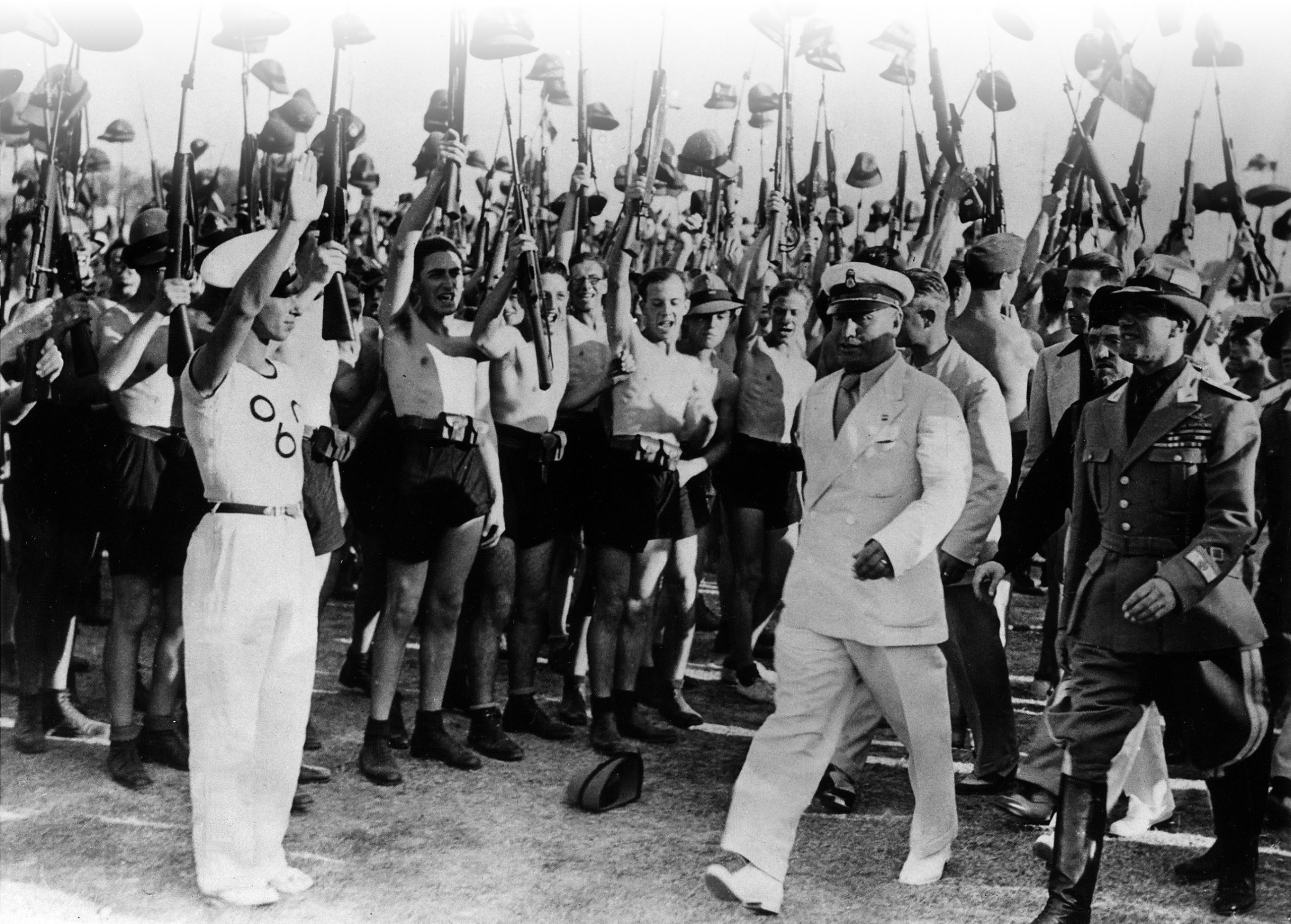
Abyssinia, known today as Ethiopia, was a poor and undeveloped country in east Africa. It was one of the few areas of Africa not under European control and had a proud history of defiant independence. Italy had tried to conquer Abyssinia in 1896 to add it to its existing Italian colonies of Eritrea and Somaliland. Yet the Abyssinian emperor, Menelik II, had soundly beaten the Italian forces led by General Baratieri at the Battle of Adowa. Estimates vary, but perhaps as many as 8,000 of Baratieri’s 14,500 men were killed and almost 2,000 were taken prisoner. It had been the greatest victory of an African army over a European one since Hannibal of Carthage, though the Abyssinians had been helped by European weapons — newly-acquired rifles and French Hotchkiss machine guns.
The dictator Benito Mussolini seized power in Italy in 1922. His Fascist Party had no coherent ideology and was based largely upon opportunism, but the glorification of war and an imperialistic desire to recreate the glory of the ancient Roman empire were a strong part of its appeal. Mussolini was keen to avenge the defeat at Adowa, which was widely seen as a humiliating blot on the country’s record. He craved the glory to be gained from military victory, while Abyssinia’s mineral resources and potentially fertile lands were a further attraction.
Your organisation does not have access to this article.
Sign up today to give your students the edge they need to achieve their best grades with subject expertise
Subscribe




